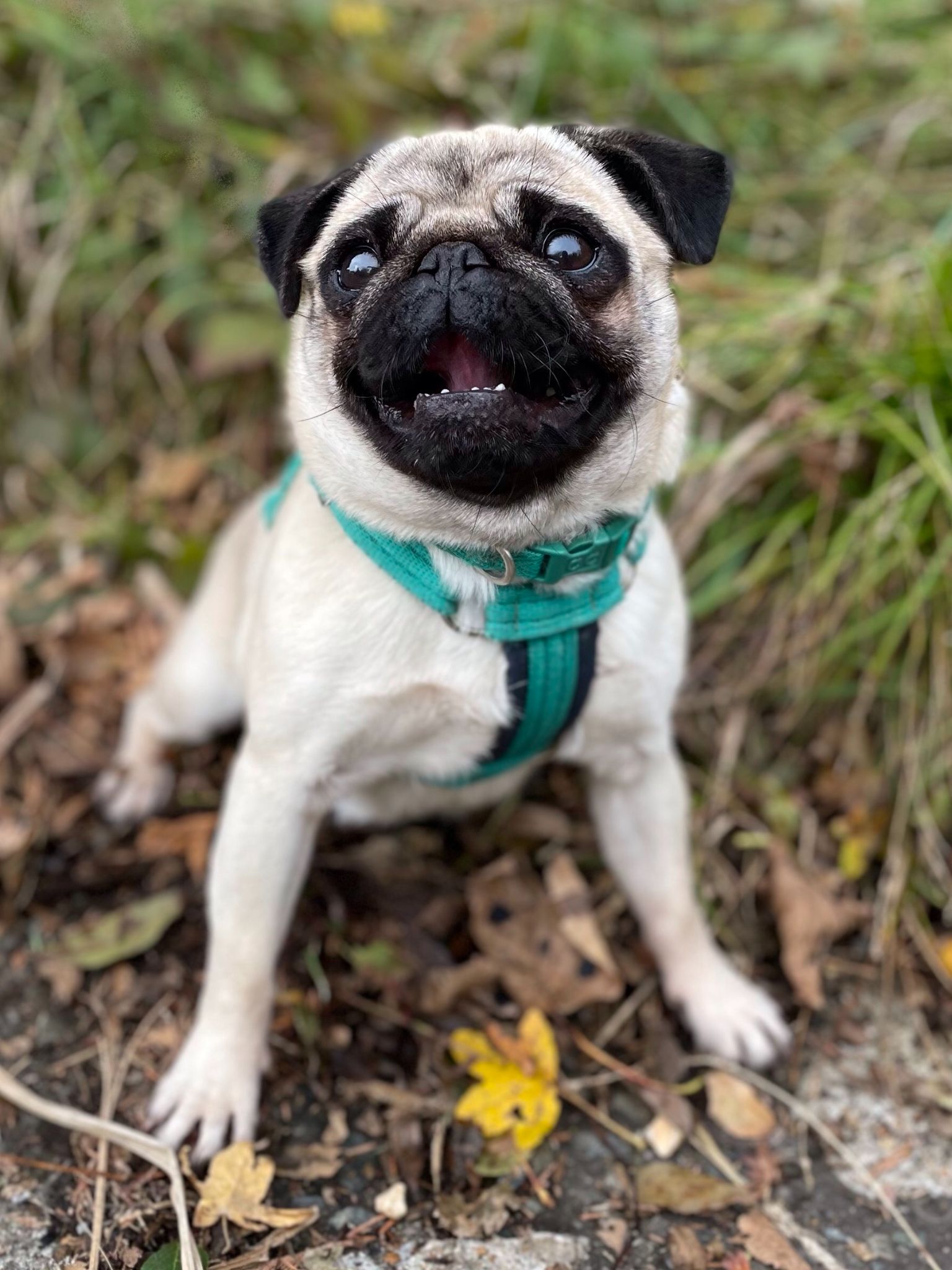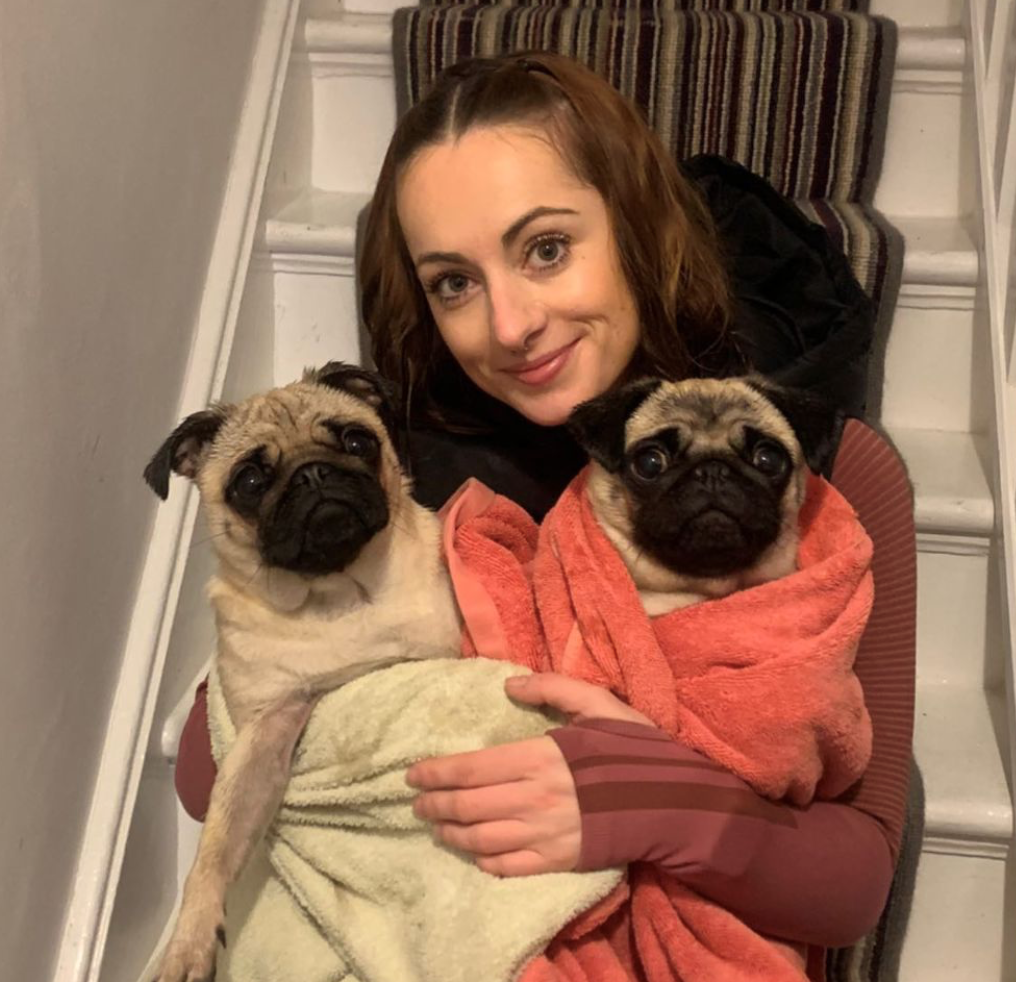
A neglected pug can now breathe after undergoing an expensive operation to correct a common condition in flat-nosed dogs.
The RSPCA says it is seeing an increasing number of dogs with the same condition which affected four-year-old Polly, and which is caused by “irresponsible” cosmetic breeding.
Polly, who had a difficult start in life, came into the care of the RSPCA Brighton branch in January this year and it soon became clear she had BOAS – Brachycephalic Obstructive Airways Syndrome – which was impacting her quality of life.
RSPCA Brighton branch manager Jenny Eden said: “Polly had surgery to clear her airways but sadly her condition was so severe she needed further treatment.
“She needed two procedures to correct the abnormal and excess tissue present simply because of deliberate breeding.
“Thankfully she seems to be doing much better now and is in a loving home after her foster carer decided to adopt her permanently.
“We are seeing an increasing number of dogs with BOAS – four in the last six months just at our branch – as popular flat-faced breeds are being given up.”

Kirsty Gibbons, who has adopted Polly, said: “I first saw Polly on the RSPCA website where they had described her breathing difficulties that had been debilitating, what I can only expect to be her whole life.
“I offered to foster Polly whilst she awaited her life-changing surgery as I couldn’t bear the thought of her recovering in the kennels.
“When I first brought Polly home, she was scared of a lot of things, was unable to settle and highly reactive to noise and movements.
“I had to monitor every interaction between my other pug, Indie, and Polly as the slightest bit of play caused Polly to gasp for air and her tongue would turn blue through lack of oxygen.
“It’s four weeks post-surgery, and after some complications, Polly is thriving.
“She is finally able to keep up on walks with Indie and is able to breathe easily.
“We are discovering all new play noises that she makes when she is happy and excited that she was unable to make before.
“Polly is relaxed, happy and full of life since her surgery in such a short amount of time, I’m sure she’ll continue to get better. We love having her a part of our family and can’t imagine a home without her.”
The RSPCA has launched a new campaign Save Our Breath urging the public not to buy breeds who cannot live normal lives due to the irresponsible way they’ve been selectively bred.
It comes as the popularity of flat-faced dogs, like pugs, has surged, often driven by celebrity owners, social media and their use in advertising.
With the surge in demand for pets during lockdown there are fears that more brachycephalic dogs, cats and rabbits will have been bred by breeders resulting in even more sickly animals who require expensive veterinary treatment to help them carry out the simplest of everyday tasks such as walking and playing.
And the RSPCA fears that more of these animals could be abandoned or relinquished to charity as their owners struggle to cope with costly veterinary bills as the cost of living soars.
RSPCA chief vet Caroline Allen said: “Our desire for cuteness and the selection for shorter, flatter faces – known as brachycephaly – has resulted in dogs who struggle to breathe.
“Their excessive soft tissue causes obstruction in their airways and their abnormally narrowed nostrils and windpipes leave them gasping for air.
“Struggling to breathe, or even sleep is very distressing and affected dogs are struggling with this every day, with serious impacts on their welfare.
“They also face eye problems, skin concerns due to excessive wrinkles, and painful back conditions due to corkscrew tails.
“We understand why there is so much love out there for these breeds. But it’s wrong that we’re knowingly breeding for features which compromise their basic health and welfare.”
The public has an important role to play in helping to improve the future health of these breeds. We need to stop seeing these pets as cute and recognise the serious health issues they face.
The Save Our Breath campaign seeks to educate the public about the impact of this type of breeding on dog welfare. The RSPCA would like people to consider getting an alternative breed or consider a crossbreed that has a lower risk of problems.
For those wishing to get involved in the Save Our Breath, there will be two surveys available to members of the public. One survey will collect crucial information on brachycephalic animals in advertising, while the other will allow the public to share their own experiences with these animals. This vital research will help inform the RSPCA’s experts as it works to protect future generations of these animals.
Supporters can also sign up to the Give Animals a Voice campaign network for the latest information and access to campaign materials.
To help support Polly’s ongoing needs please donate here.







People should feel ashamed buying mutated dogs like this and the RSPCA should set up a register where you can check a pets average veterinary bills based on the breed to make people aware of how serious the problem is.